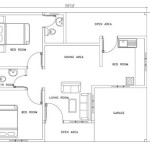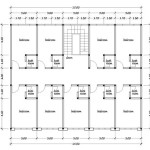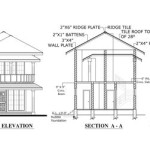Essential Aspects of Small Japanese House Plans
Small Japanese house plans are renowned for their efficient use of space, elegant aesthetics, and emphasis on natural elements. If you're considering building a compact and functional home, exploring the intricacies of Japanese house plans can provide valuable inspiration.
Compact and Functional Spaces
Japanese houses are known for their efficient floor plans, which maximize every inch of space. Rooms are typically designed to be multi-functional, serving multiple purposes to accommodate various activities. For example, a living room may also double as a dining area or a guest room.
Traditional Elements and Modern Amenities
Small Japanese houses often blend traditional elements with modern amenities. Sliding shoji screens and tatami flooring create a sense of tranquility and connect the interior to the outdoors. At the same time, built-in appliances and contemporary furnishings provide comfort and convenience.
Natural Materials and Lighting
Japanese architecture emphasizes the beauty of natural materials, such as wood, bamboo, and paper. These materials create a warm and inviting atmosphere while allowing for ample natural light. Large windows and skylights maximize daylight, reducing the need for artificial lighting.
Flexible Spaces
Many small Japanese houses incorporate flexible spaces that can be adapted to changing needs. Sliding screens or fusuma doors can be used to divide or open up rooms, creating different configurations to suit different occasions or seasons.
Outdoor Integration
Japanese houses often seamless integrate indoor and outdoor spaces. Gardens, courtyards, or porches extend the living area and provide opportunities for relaxation and contemplation. Sliding doors allow for easy access to the outdoors, creating a sense of spaciousness and connection to nature.
Storage Solutions
Despite their compact size, small Japanese houses offer ample storage solutions. Built-in cabinets, shelves, and drawers utilize every nook and cranny to maximize storage capacity. Sliding doors or screens conceal storage areas, maintaining a clean and uncluttered aesthetic.
Architectural Details
Small Japanese houses often feature distinctive architectural details that enhance their aesthetic appeal. Asymmetrical lines, exposed beams, and unique window shapes create visual interest and add character to the home. Small details, such as decorative tiles or intricate latticework, can also elevate the overall design.
Conclusion
Small Japanese house plans embody a philosophy of simplicity, functionality, and harmony with nature. By incorporating these essential aspects into your own home design, you can create a compact and elegant dwelling that caters to your needs while promoting a sense of well-being and tranquility.

Minimalist 778 Sq Ft Japanese Family Small House Style

Japanese Small House Plans Pin Up Houses Design

Nice Traditional Japanese House Floor Plan Minimalist Home Design

Japanese Small House Design Plans Smallhouseplans Floor

The Floor Plan Of Apartments In Japan Japanese Home Archi Designer

St House By Panda Architects Living Small In Japan

Get Japanese Small House Design Plans Pictures Traditional

Guide To Japanese Apartments Floor Plans Photos And Kai Keywords Blog

Japanese Small House Plans Pin Up Houses

Gallery Of The Japanese House Konishi Gaffney Architects 27








